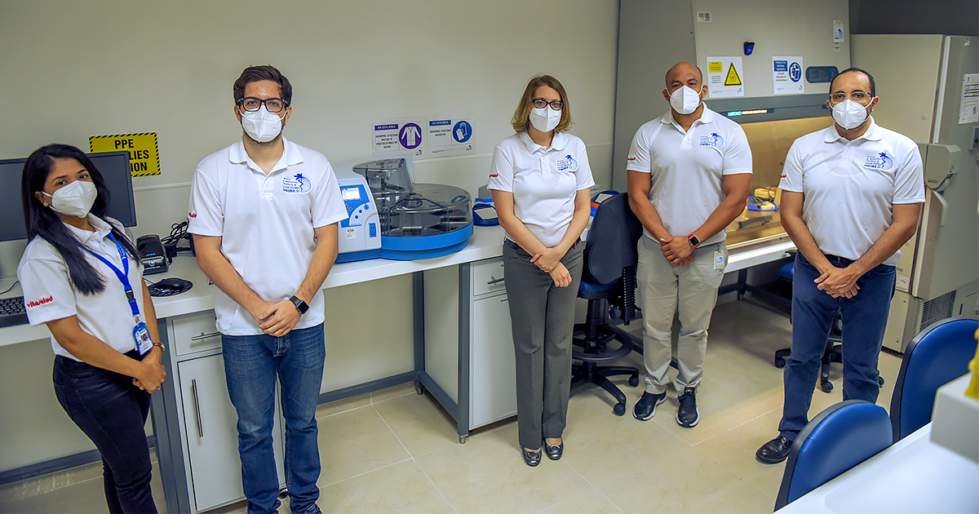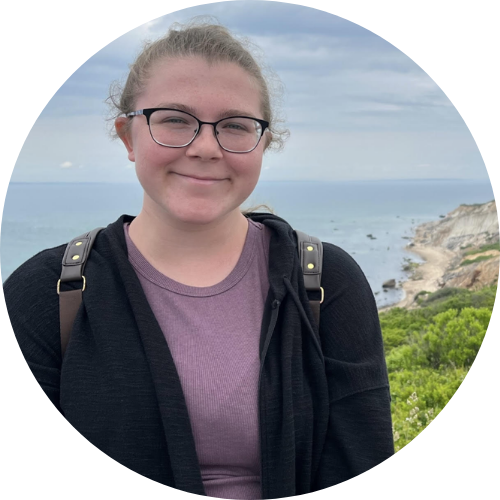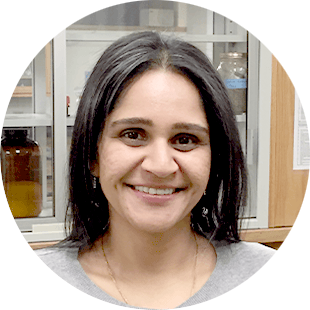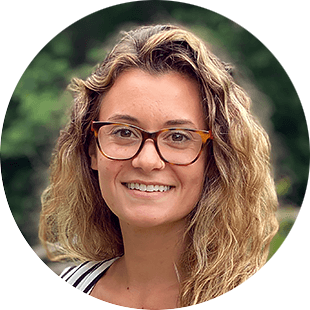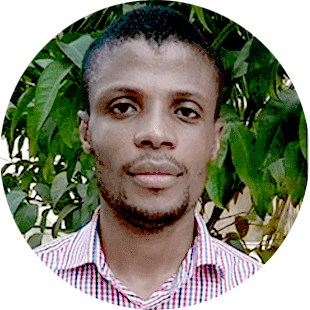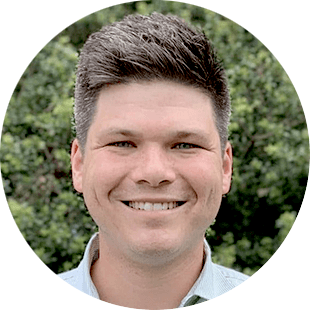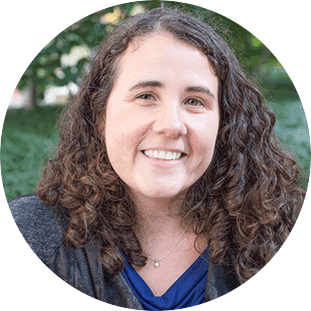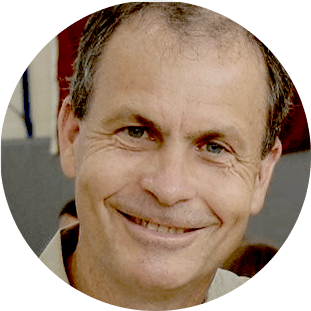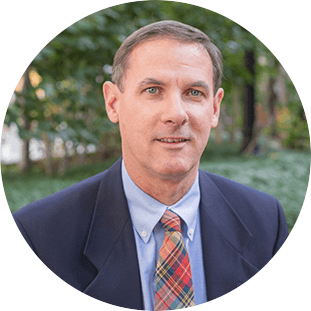Thanks to equipment from Seeding Labs, the Institute of Tropical Medicine & Global Health is playing an important role in pandemic response.
Just three years ago, the Institute of Tropical Medicine & Global Health (Instituto de Medicina Tropical & Salud Global) at Universidad Iberoamericana (UNIBE) opened its doors.
It is the first and only research institute dedicated to emerging, tropical, and infectious diseases in the Dominican Republic.
With an Instrumental Access award in 2016, Institute director Dr. Robert Paulino-Ramírez and colleagues transformed the Institute from a nascent idea to a vibrant lab with a local focus and worldwide impact.
The initial influx of equipment from Seeding Labs provided crucial start-up support and set into motion research, training, publications, and international partnerships.
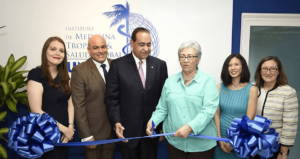
Since then, Dr. Paulino-Ramírez and his team have built upon that foundation to establish the Institute as an internationally-recognized hub for research on infectious diseases—winning more than $600,000 in research funding and employing and training nearly 300 scientists and students!
In June 2020, Seeding Labs provided UNIBE with additional equipment that paved the way for the Institute to join the country’s pandemic response by processing COVID-19 diagnostic tests (see the UNIBE announcement here).
Thanks to this new infusion of instruments, the Institute will soon significantly expand and accelerate COVID-19 testing for the entire country.
Poised to Help the National COVID-19 Response
Like most of the world, the Dominican Republic has been hit hard by the COVID-19 pandemic. More than 50,000 cases have been confirmed.
Currently, just three labs are certified to process COVID-19 tests in the Dominican Republic, a country of over 10 million people.
Increased testing has led to a growing backlog, and the system has been overwhelmed. Limited technology and global shortages of the materials necessary to use that technology for diagnostics have exacerbated the problem.

“One of the biggest challenges is diagnosis,” says Dr. Paulino-Ramírez. “We are following the data to see where we can most effectively intervene.”
As Scientific Advisor to the Presidential Commission on COVID-19 in the Dominican Republic, Dr. Paulino-Ramírez realized that the Institute had the potential to help.
With a robust research infrastructure and highly-trained staff in place, the most difficult work was already done.
If Dr. Paulino-Ramírez could acquire a few specialized pieces of equipment, the Institute could add diagnostics capacity and increase the country’s ability to quickly process COVID-19 tests.
However, the instruments were in high demand, and their steep price was out of reach.
Working Together to Combat the Pandemic
Because of our longstanding partnership, Dr. Paulino-Ramírez turned to Seeding Labs for a solution.
With equipment and financial support from our corporate partners, we were able to meet the Institute’s needs. A new infusion of specialized diagnostics instruments from Seeding Labs arrived at the Institute in June 2020.
“We have learned from previous public health emergencies, like Zika virus, that our Institute needs to be prepared to quickly respond to a pandemic. To do that, we need global partners, we need innovation, we need courage, and we need a group of brave scientists with vibrant hearts and stamina to build the foundation for the future,” says Dr. Paulino-Ramírez. “We found the global partners in Seeding Labs, and today we are more prepared to respond to a national epidemic.”
With a real-time PCR machine and automated RNA extraction system, the Institute is now the best-equipped academic laboratory in the Dominican Republic for COVID-19 diagnostics.
The tools are enabling Dr. Paulino-Ramírez and his team to leapfrog manual time- and labor-intensive techniques of processing COVID-19 tests and be part of the global discussion on SARS-CoV-2 isolation.
Additionally, the equipment galvanized the conversation between the Institute and local government. Legislators are relying on evidence-based guidance from academia and incorporating the latest research findings into their decision-making.
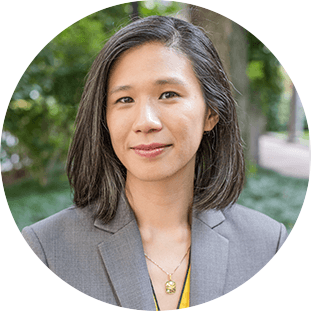
“What Dr. Paulino-Ramírez and his colleagues at UNIBE have accomplished exemplifies what happens when we support local efforts to create an environment where scientific talent can thrive,” says Melissa P. Wu, PhD, CEO of Seeding Labs. “This Institute is making strides in the global understanding of infectious disease, informing policymaking, and directly improving the lives of the regional population. UNIBE was at the cusp of this rapid innovation, and we just gave them a little push toward this exponential impact.”
On the Fast Track
After navigating the rigorous government regulations for diagnostics labs, the Institute is now on the cusp of receiving its official approval to begin operations as the country’s fourth COVID-19 diagnostics site.
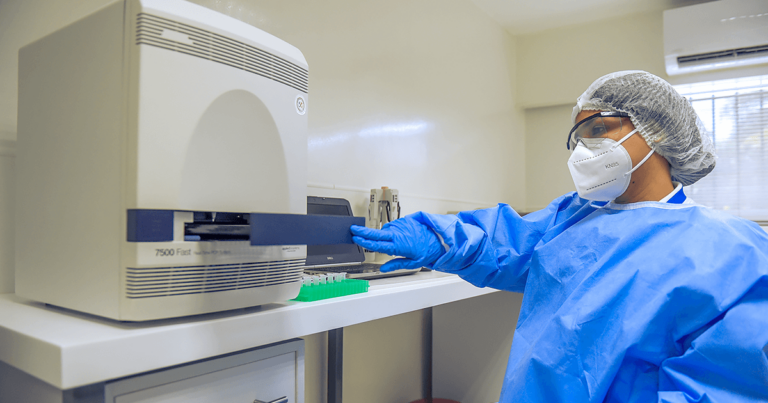
Thanks to the equipment, the Institute anticipates processing COVID-19 tests at a rate of 500 to 1,000 per day—far outpacing manual methods.
Dr. Paulino-Ramírez, in conjunction with the Servicio Nacional de Salud (National Health Service) and the government’s Comité de Emergencia y Gestión Sanitaria (Sanitary and Emergency Committee) is hiring and training lab technicians to process the tests.
In addition to creating jobs, Dr. Paulino-Ramírez is building local knowledge in viral dynamics.
Financial support from the Ministry of Economics, Planning, and Development and Minister Juan Ariel Jiménez has been crucial to the Institute’s efforts.
The result is expanded capacity at the Institute and a significant increase in the country’s ability to protect public health.
Expanded Horizons and Next Steps
With these technologies in place, the Institute’s research horizons can be broadened to include wider studies on COVID-19. One research question they plan to tackle is how people with serious underlying conditions like HIV/AIDS or diabetes are affected by the virus.
And once the acute phase of the COVID-19 crisis passes, the Institute’s capacity to perform diagnostics tests will be critical to both research and community health.
Photo at top: (left to right) Gathered in the Institute are Dr. Estéfani Sánchez, pathologist; Mr. Alejandro Vallejo, Laboratory Coordinator; Dr. Aída Mencía Ripley, Dean of Research and Innovation at UNIBE; Dr. Robert Paulino-Ramírez, director of the Institute for Tropical Medicine & Global Health; and Dr. Leandro Féliz Matos, Managing Director of Research and Innovation.
10 August 2020 Update: The Institute received its official government accreditation for its diagnostics lab! Read more here.
